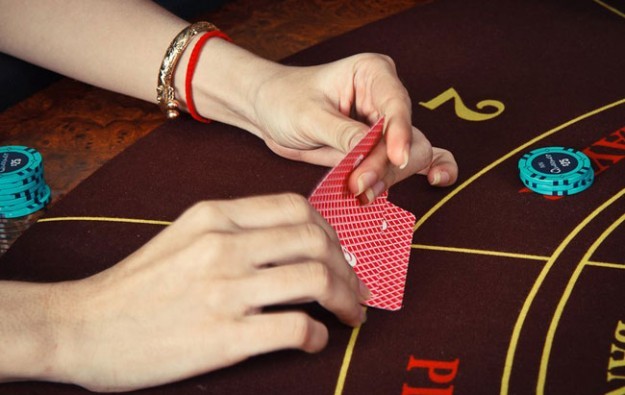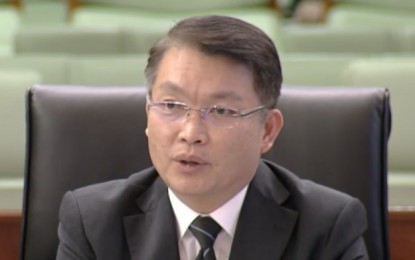A lasting locals ban re Vietnam casinos bad: analyst
Sep 06, 2016 Newsdesk Latest News, Rest of Asia, Top of the deck

Vietnam media reports that the country’s government wants to keep in place a ban on locals entering casinos there, would – if confirmed – be “clearly bad news for international IR [integrated resort] developers,” said a note on Tuesday from Union Gaming Securities Asia Ltd.
Investors had “viewed Vietnam as one of the prized global greenfield opportunities,” added analyst Grant Govertsen.
Las Vegas Sands Corp is among those foreign casino investors that have in the past reportedly looked at development opportunities there. So reportedly has Bill Weidner, a former president of that company, who has since pursued investments of his own. MGM Resorts International once had a branding deal on a beachside casino resort at Ho Tram, near Ho Chi Minh City, but pulled out in March 2013, prior to the property’s opening in July that year.
English-language media outlet VnExpress carried on Monday the news of the likely continuation of the ban on locals gambling in Vietnam casinos, citing comments by a senior official of the country’s Finance Ministry, quoted by the Thanh Nien newspaper that day. But comments attributed to the official appeared to leave some room for negotiation on the issue.
“We are continuing to study and gauge the social impacts of letting Vietnamese punters [sic] into casinos,” VnExpress quoted the official as saying to the newspaper. The original Thanh Nien story was in Vietnamese. No English-language version was available on the newspaper’s English-language website when GGRAsia checked on Tuesday.
“We want to report to the higher-ups about the ramifications this could have such as organised crime, gambling addictions, money laundering and other illicit activities,” the official was said to have added.
Vietnam’s Ministry of Finance reportedly completed a draft decree last year aiming to promote the development of the nation’s gaming sector. Industry observers expected the new rules could eventually allow Vietnamese nationals to gamble in the country’s casinos.
Union Gaming noted: “The Ministry of Finance stated that they are still studying the ramifications of allowing Vietnamese citizens to gamble, which, in our opinion, leaves the door open slightly.”
The institution added: “We are taking this news [of a continued ban on locals] with a grain of salt as not only is the draft decree up for further revisions, but that it could represent a trial balloon in order to get further input from the local community (or perhaps extract more concessions from developers).”
Investor friendly?
The brokerage added that in terms of the broader picture, Vietnam appeared – in the latest reported version of the draft decree to regulate casinos – to be taking a stance that was not especially welcoming to casino investors.
“The draft decree… appears to maintain a rather onerous taxation environment, including a 10-percent VAT [value-added tax], a 35-percent GGR [gross gaming revenue] tax (although junket commissions would appear to be deductible and thus result in a significantly lower effective GGR tax rate), and a 20-percent corporate income tax,” noted Mr Govertsen.
“It also maintains the minimum capital requirement of US$4 billion,” stated the analyst. The investment community has widely regarded such capital spending minimum as unrealistic for Vietnamese casino resort schemes without the ability for casino operators to accept local players; as well as in the light of China’s anti-graft crackdown, that some analysts say has placed a chill on the activities of wealthy Chinese gamblers even when they frequent casinos outside Macau.
“Based on the contents of the current draft decree we would not expect any major international IR operators to pursue opportunities in Vietnam,” said Union Gaming.
Management at Ho Tram had told GGRAsia in an October 2014 interview that the property hoped to be part of a pilot programme for locals to gamble, possibly via the use of an entry levy for locals or some other economic test.
Mr Govertsen added: “Many parties had anticipated that Ho Tram, as the country’s first true international-style large-scale casino resort, would be part of a locals pilot project. Should the Ministry of Finance maintain a no-locals approach, we would have elevated doubts on the project’s viability.”
Suncity investment
In April, media outlets in Vietnam reported that Hong Kong-based Chow Tai Fook Enterprises Ltd; Macau junket operator Suncity Group; and Vietnam-based asset management firm VinaCapital Group, would soon start construction on a planned casino resort in Vietnam’s Quang Nam Province.
In May, Suncity said in an emailed statement to GGRAsia that the project would include three hotels. The statement did not mention gaming.
During the 2015 edition of the Macao Gaming Show – a casino industry trade exhibition and conference – held in November, Vietnamese academic Augustine Ha Ton Vinh forecast to GGRAsia in comments made on the sidelines of the event, that “Vietnam could become a market worth US$3 billion to US$6 billion a year” in gross gaming revenue. That was if all the new casino projects tabled as of that time came to fruition, and if locals were allowed to use them, he added. The scholar said he had been advising the government in relation to regulation of the casino gaming market there.
He has separately been quoted saying the country could be losing as much as US$800 million a year in tax revenue due to Vietnamese travelling to neighbouring countries in order to gamble in casinos.
Related articles
-
 Vietnam locals-play pilot confirmed to...
Vietnam locals-play pilot confirmed to...Nov 06, 2024
-
 Kangwon Land 3Q net income up 24pct...
Kangwon Land 3Q net income up 24pct...Oct 28, 2024
More news
-
 Macau to get 36mln visitors in 2025:...
Macau to get 36mln visitors in 2025:...Nov 21, 2024
-
 EBITDA a focus in Macau market share...
EBITDA a focus in Macau market share...Nov 21, 2024
Latest News
Nov 21, 2024
Macau’s 2025 visitor tally could reach 36 million, or a circa 9-percent gain on this year’s projected 33 million. So said Lei Wai Nong (pictured in a file photo), the city’s Secretary for...Sign up to our FREE Newsletter
 (Click here for more)
(Click here for more)
Pick of the Day
”[Baccarat side bets in Macau] are becoming more popular amongst players, based on what we observed when we conducted our [monthly premium mass] table surveys”
George Choi and Timothy Chau
Analysts at Citigroup
Most Popular
 Gaming technology firm IGT reports hacking incident November 21, 2024
Gaming technology firm IGT reports hacking incident November 21, 2024  US$30bln 2025 GGR target achievable for Macau: CE November 19, 2024
US$30bln 2025 GGR target achievable for Macau: CE November 19, 2024  Marina Bay Sands projects 40pct EBITDA leap post extension November 20, 2024
Marina Bay Sands projects 40pct EBITDA leap post extension November 20, 2024  Macau big-event outdoor venue gets trial run Dec 28: CE November 20, 2024
Macau big-event outdoor venue gets trial run Dec 28: CE November 20, 2024  Future of gaming is the online format: Pagcor chairman November 20, 2024
Future of gaming is the online format: Pagcor chairman November 20, 2024









